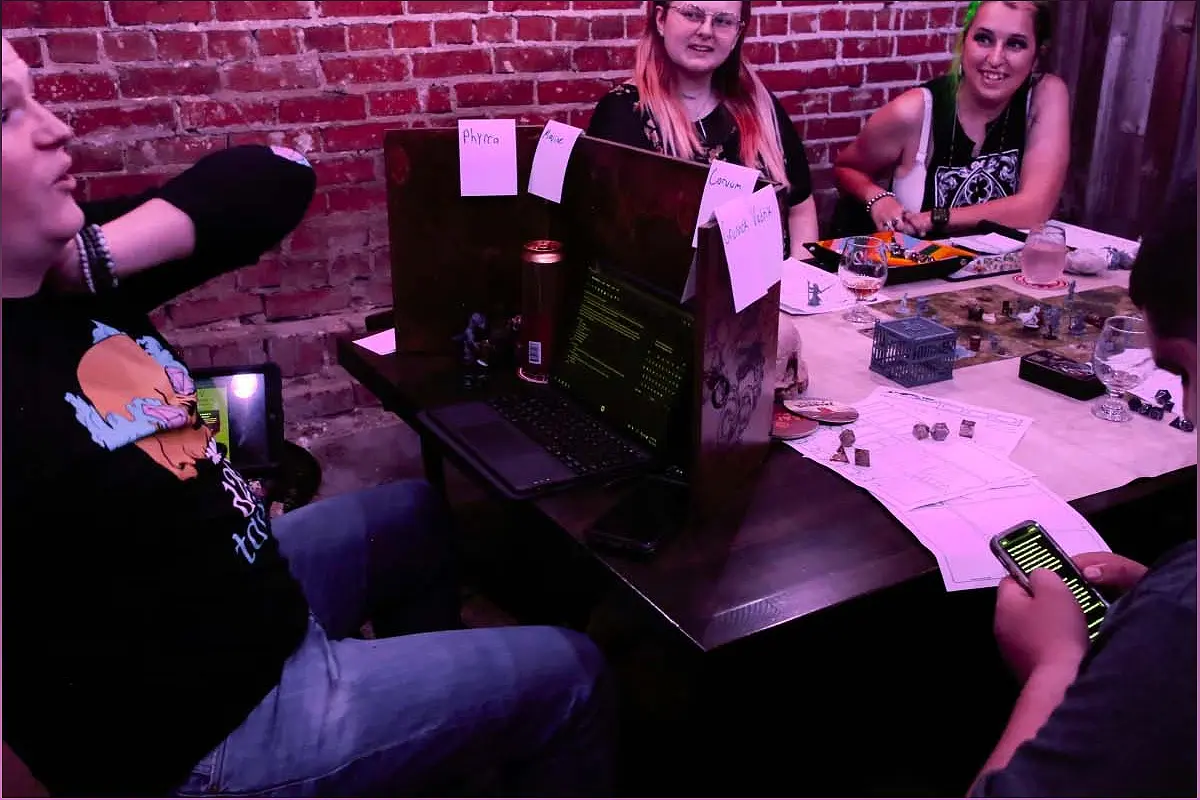In the realm of role-playing games, Dungeons & Dragons (D&D) has emerged as a powerful tool for addressing mental health challenges. This article explores how psychologists are harnessing the therapeutic benefits of D&D to combat loneliness, anxiety, and depression in teenagers and adults. Join us as we delve into the immersive world of D&D, where players can escape their everyday lives, develop empathy and social skills, and find solace in a supportive community.
The Therapeutic Power of Dungeons & Dragons
Discover how Dungeons & Dragons is being used as a therapeutic tool to address mental health challenges.
Role-playing games have taken on a new role in the field of psychology, with Dungeons & Dragons (D&D) at the forefront. This beloved fantasy game has proven to be a powerful tool for addressing mental health challenges such as loneliness, anxiety, and depression.
By immersing themselves in the world of D&D, players can step into the shoes of their characters, exploring different narratives and processing emotions in a safe and supportive environment. The game provides a unique blend of escapism, social interaction, and personal growth.
With its rich storytelling and collaborative gameplay, D&D offers a therapeutic experience that goes beyond traditional talk therapy. Let's delve deeper into the therapeutic power of Dungeons & Dragons and how it is transforming lives.
Building Connections and Fostering Social Skills
Explore how D&D helps players build connections, develop social skills, and form lasting friendships.
One of the remarkable aspects of D&D is its ability to bring people together. As players embark on quests and face challenges as a team, they form a unique bond that extends beyond the game table. Through shared experiences and collaborative problem-solving, players build connections and develop social skills.
The game encourages communication, teamwork, and empathy, as players must navigate complex situations and make decisions together. In the process, they learn to understand and respect different perspectives, fostering a sense of inclusivity and acceptance.
Whether playing with friends or joining a D&D group, the game provides a platform for individuals to connect, forge new friendships, and combat feelings of isolation. The power of D&D lies not only in the fantastical adventures but also in the real-world connections it cultivates.
Exploring Personal Narratives and Processing Emotions
Discover how D&D allows players to explore personal narratives, rewrite their stories, and process emotions in a supportive environment.
Within the realm of D&D, players have the freedom to create characters that reflect their own experiences, desires, and challenges. They can explore personal narratives, rewrite their stories, and gain new perspectives on their own lives.
The game offers a safe space for individuals to process emotions and confront difficult situations. Whether it's dealing with grief, loss, or other emotional struggles, players can find solace and support within the game's framework.
Through their characters' journeys, players can experience personal growth, develop resilience, and gain a deeper understanding of themselves. D&D serves as a therapeutic tool that allows individuals to confront their fears, express their emotions, and embark on a transformative journey of self-discovery.
Enhancing Empathy and Strategic Thinking
Uncover how D&D enhances empathy, strategic thinking, and moral development.
D&D goes beyond mere entertainment; it cultivates valuable skills such as empathy and strategic thinking. As players inhabit different characters, they are challenged to understand their motivations, make decisions, and consider the consequences of their actions.
The game prompts players to think critically, solve problems, and strategize, fostering cognitive skills that can be applied in real-life situations. Players learn to consider multiple perspectives, make ethical choices, and navigate complex social dynamics.
Research has shown that D&D can enhance moral development, as players are faced with dilemmas that require them to weigh the consequences of their choices. By engaging in these immersive experiences, players develop a heightened sense of empathy, moral reasoning, and strategic thinking.
The Transformative Power of Dungeons & Dragons
Discover the transformative impact of D&D on individuals, particularly teenagers, and its potential for personal growth.
Dungeons & Dragons has proven to be a life-changing experience for many individuals, especially teenagers. The game provides a platform for self-expression, creativity, and personal growth.
Teenagers who engage in D&D often develop confidence, social skills, and a sense of belonging. They learn to collaborate, communicate effectively, and think outside the box. Through the game's challenges and triumphs, they gain a deeper understanding of themselves and their capabilities.
Furthermore, D&D offers a space for teenagers to explore their identities, try on different roles, and navigate complex emotions. It serves as a therapeutic outlet, empowering them to overcome obstacles, build resilience, and discover their own strengths.

